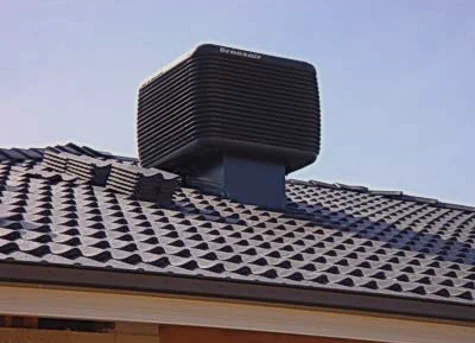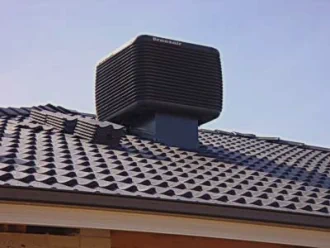
Evaporative Cooling: How It Works and Why It's Ideal for Australian Homes
Evaporative cooling, also known as evap cooling or evaporative air conditioning, is a highly effective and energy-efficient method of cooling homes, particularly in dry climates such as Melbourne, Victoria. This article delves into the principles of evaporative cooling, its numerous benefits for homes, and why it stands out as a superior choice compared to traditional air conditioning systems.
Principles of Evaporative Cooling
Evaporative cooling is a natural process that harnesses the power of water evaporation to cool the air. The basic principle involves drawing warm air through water-saturated pads. As the air passes through these pads, the water evaporates, absorbing heat from the air and resulting in cooler, moister air. This cooled air is then circulated throughout the home, lowering the overall temperature.
Key components of an evaporative cooling unit include:
- Water Reservoir: Supplies water to the cooling pads.
- Cooling Pads: Water-saturated materials where the evaporation process occurs.
- Fan: Draws warm air through the cooling pads and pushes the cooled air into the living space.
- Ductwork: Distributes the cooled air throughout the home.
Benefits of Evaporative Cooling for Australian Homes
Ideal for Dry Climates
In regions like Melbourne, is characterized by hot, dry summers. Evaporative cooling is particularly well-suited for these conditions as it works best in low-humidity environments. The cooling process also adds moisture to the air, providing a more comfortable living environment by preventing the dryness often associated with traditional air conditioning.
Cost-Effectiveness
Evaporative cooling systems are generally less expensive to install and maintain compared to traditional air conditioning systems. The initial cost of an evaporative cooling unit is typically lower, and the simple design means fewer components that could potentially require costly repairs.
Energy Efficiency
One of the most significant advantages of evaporative cooling is its energy efficiency. Unlike conventional air conditioning systems that rely on energy-intensive compressors, evaporative coolers use a fan and a water pump, which consume considerably less electricity. This lower energy consumption translates to reduced utility bills and a smaller carbon footprint, making it an environmentally friendly option.
Environmental Impact
Evaporative cooling has a much lower environmental impact than traditional air conditioning systems. It uses water as a cooling medium, which is a natural and renewable resource, and does not rely on harmful refrigerants that can deplete the ozone layer. Moreover, the energy-efficient operation reduces greenhouse gas emissions, contributing to a more sustainable future.
Coldflow Heating and Cooling: Melbourne's Leading Evaporative Cooling Specialists
For homeowners in Melbourne considering evaporative cooling, Coldflow Heating and Cooling stands out as a leading specialist in the field. With extensive experience and expertise, Coldflow offers comprehensive services including sales, installation, and maintenance of evaporative cooling systems. We provide extensive warranties on their products, ensuring peace of mind and long-term reliability for you.
Coldflow's commitment to quality and customer satisfaction makes them a trusted choice for those looking to benefit from the advantages of evaporative cooling. We can help you select the right system for your home, ensuring optimal performance and efficiency.
Conclusion
Evaporative cooling is highly effective and environmentally friendly cooling solution, especially suited for dry climates like those found in Melbourne. Its cost-effectiveness, energy efficiency, and minimal environmental impact make it an ideal choice for homeowners seeking an alternative to traditional air conditioning systems. With the expertise of specialists like Coldflow Heating and Cooling, Melbourne residents can enjoy the benefits of evaporative cooling with confidence and ease.
Book a discussion with a Coldflow team member about Evaporative Cooling now.
View Air Conditioning Articles







 Dealer Only Brands: Daikin, Breezair, etc.
Dealer Only Brands: Daikin, Breezair, etc.
